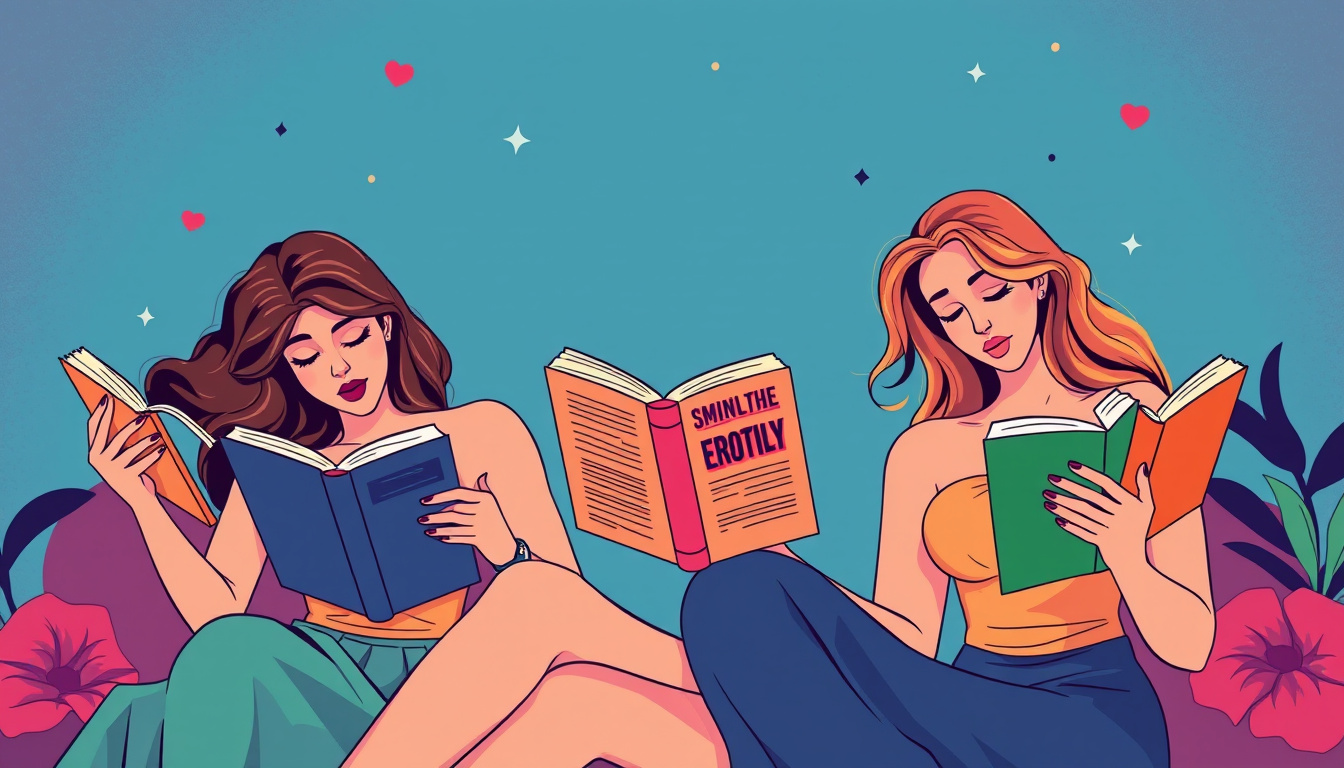Physical Address
304 North Cardinal St.
Dorchester Center, MA 02124
Physical Address
304 North Cardinal St.
Dorchester Center, MA 02124

The exploration of female sexuality and desire has long been mirrored in literature, primarily through the genre of erotica. There exists a growing interest and acceptance of erotic fiction among women, which has triggered a fascinating cultural shift in the way female desire is perceived and discussed. This article delves into the nuances of this intersection between women and erotica, its impact on sexual empowerment, and the perceptions surrounding women’s sexual fantasies.
In recent years, erotic fiction has surged in popularity, with notable books like E.L. James’ Fifty Shades of Grey leading a massive cultural shift. This series alone sparked an impressive increase in the sales of erotic literature, exposing the depth of female interest in exploring sexuality through reading. Accessible e-readers have become instrumental in this trend, allowing women to consume erotic content privately and without societal judgment, breaking stigmas associated with female sexual expression. Not only does it provide an imaginative escape, but studies indicate that women who immerse themselves in romantic or erotic narratives experience an uptick in sexual activity and satisfaction with their partners.
As author Nikki Gemmell has noted, the rise of erotic literature has opened a dialogue across generations about women’s sexual fantasies, encouraging conversations that were once taboo. This burgeoning openness amongst women—from reading on public transport to discussing narratives with friends and family—signifies a cultural revolution that embraces female sexuality as both normative and empowering.

At its core, erotic literature serves not only as entertainment but also as a catalyst for sexual empowerment. Many women report that engaging with erotic content expands their understanding of desire and pleasure, fostering a stronger connection with their own sexual identities. According to sexologist Elaine George, erotic fiction allows readers to explore their fantasies and craft scenarios that ignite their senses. This form of literary exploration encourages a deeper understanding of intimacy and sexual desire within relationships.
Moreover, erotic writing often weaves themes of consent, sexual agency, and self-discovery into its narratives, aligning with contemporary movements around sex positivity and feminist discourse. While some criticize the genre for normalizing superficial or transactional views of sex, proponents argue that erotic literature can serve as a vehicle for learning about pleasure, asserting that healthy sexual experiences are complex and multifaceted.
Despite the beneficial aspects, there are ongoing discussions about the societal implications of erotic literature, particularly in relation to themes of sexual empowerment. Critics argue that while the genre promotes a certain kind of liberated view of female sexuality, it can also trivialize deeper emotional connections traditionally associated with intimacy. The notion that reading erotic narratives will equate to real-life sexual satisfaction remains contentious.
There exists a valid concern regarding the potential disconnect between the idealistic representations of sex found in erotica and the nuanced realities many women face in personal relationships. As highlighted in some criticisms, the consumption of literature that centers on sexual pleasure may lead to unrealistic expectations and could diminish the profound meanings associated with intimate relationships.
In navigating this complex landscape, it is essential for readers to engage with erotic fiction critically. While these narratives can empower and educate, readers should also consider the broader societal messages they convey. Understanding the difference between entertainment and reality is crucial for fostering a healthy sexual attitude.
Women across diverse backgrounds continue to appreciate the beauty of erotica—whether in the form of traditional novels, online stories, or audio narratives—as a means of exploring their sexuality without fear of judgement. Sites dedicated to women-centric erotic content have proliferated, showcasing a variety of stories that cater to different preferences and sexual orientations.
The intersection of women and erotica in both literature and life captures a profound and evolving experience of female desire. As society progresses in its conversation about sexuality, erotic fiction plays a pivotal role in normalizing women’s desires while also acting as a reflection of evolving social norms. Whether through reading or creative expression, women’s engagement with erotica serves as a powerful testament to the changes in how female pleasure is perceived and embraced.
In embracing erotic literature, women find not only joy in exploration but also a pathway to empowerment—garnering confidence in their desires, forging connections with their partners, and reclaiming their narratives in the realm of sexuality. The future of erotica promises further exploration of these themes, inviting women to understand and celebrate their desires authentically.
If you enjoyed this post and you’re craving more stories that sizzle, check out my books at Arizona-Jewel. From slow burns to explosive encounters, there’s a story waiting to sweep you away.